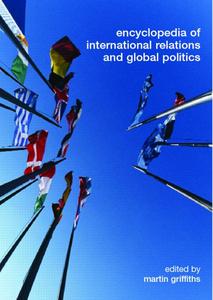Neocolonialism
Robertson, Robbie (2005) Neocolonialism. In: Griffiths, Martin, (ed.) Encyclopedia of International Relations and Global Politics. Routledge, London, UK, pp. 578-580.
![[img]](https://researchonline.jcu.edu.au/21734/8.hassmallThumbnailVersion/21734_Robertson_2005_Book_cover.jpg)
|
Image (JPEG) (Book Cover)
- Cover Image
Download (49kB) |
|
|
PDF (Published Version)
- Published Version
Restricted to Repository staff only |
Abstract
[Extract] The term neocolonialism encapsulated the disappointment that many Third World citizens felt in the 1950s and 1960s as the euphoria accompanying independence wore off. Colonialism might be officially over but its consequences lived on, often embodied in local administrators who now occupied the same positions as their erstwhile rulers and pursued similar policies. As a consequence, neocolonialism assumed new applications. Dependency theorists used the term to describe strategies actively pursued by industrialized states to perpetuate their control over Third World economies. Third world elites employed the term to deflect domestic criticism from themselves to the machinations of first world nations. And first world leaders, despite rejecting colonialism and embracing universal modernization, began increasingly to revert to the stereotyping neocolonialism employed. Neocolonialism enjoyed a dynamic history.
| Item ID: | 21734 |
|---|---|
| Item Type: | Book Chapter (Reference) |
| ISBN: | 978-0-415-31160-1 |
| Keywords: | neocolonialism; decolonization; democratization; development; Third World |
| Date Deposited: | 02 Apr 2013 01:42 |
| FoR Codes: | 16 STUDIES IN HUMAN SOCIETY > 1606 Political Science > 160607 International Relations @ 100% |
| SEO Codes: | 97 EXPANDING KNOWLEDGE > 970116 Expanding Knowledge through Studies of Human Society @ 100% |
| Downloads: |
Total: 164 Last 12 Months: 2 |
| More Statistics |



